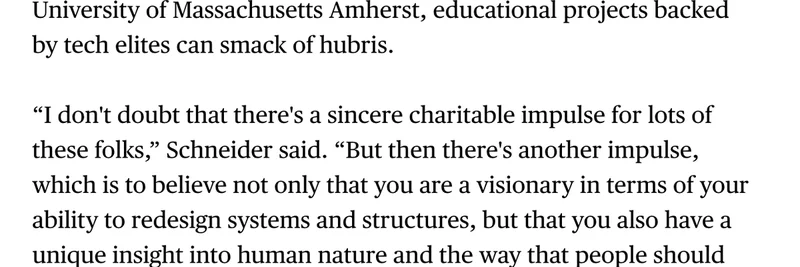Haseeb Qureshi, managing partner at Dragonfly Capital, recently took to X to share his thoughts on a fresh Bloomberg piece covering Balaji Srinivasan's Network State experiment in Forest City, Malaysia. If you're into crypto and blockchain, this is the kind of story that gets the community buzzing—it's all about pushing boundaries and reimagining how societies can form around shared tech-driven ideals.
In his tweet, Qureshi praises the article for being relatively fair compared to past mainstream media takes, like the BBC's on the Network State concept. But he calls out the underlying snark, that classic "rich tech bros building utopias" vibe. He draws parallels to America's origins, reminding us that colonists crossing oceans or settlers heading west seemed nuts at the time too. "Every great political experiment looked insane to bystanders," he writes. It's a solid defense of innovation, arguing that if you think history's done and no new experiments are legit, you're basically channeling bureaucratic vibes from the past.
The Bloomberg article (read it here) spotlights Network School, Balaji's latest venture in the troubled Forest City megaproject. For those not in the loop, Forest City is this massive development in Malaysia that's been called a $100 billion flop—think ghost town vibes with way more capacity than residents. But Balaji sees opportunity there: low rents, close to Singapore, and tax perks make it a perfect lab for his "startup societies."
Network School isn't your typical classroom setup. It's a hotel-turned-campus where students—nearly 400 so far—dive into coding, fitness, and seminars on decentralized governance. Tuition starts at $1,500 a month, covering room and board, with a diet heavy on protein and a top-notch gym to boot. The curriculum mixes practical skills with big ideas, like drawing lessons from Japan's Meiji Restoration for modern state-building. Balaji's book, The Network State: How To Start a New Country, lays the foundation: imagine online communities bonded by crypto and tech, forming real-world enclaves without traditional borders.
Critics, as highlighted in the piece, aren't sold. Jack Schneider from the University of Massachusetts Amherst points out the hubris in tech elites thinking they can redesign education and society. "I don’t doubt that there’s a sincere charitable impulse," he says, but there's also this belief in having "unique insight into human nature." It's a fair jab, especially when you consider past experiments like Peter Thiel's Seasteading or Prospera in Honduras, which hit roadblocks.
But here's where it ties into the meme token world we're all about at Meme Insider. Meme tokens thrive on community—think Dogecoin or Shiba Inu, where holders band together around fun, viral ideas. Balaji's Network State flips that into something more structured: using blockchain for governance, decentralized identity (like the Sonr project mentioned), and even tokens for community decisions. One student, Alyse Sue, co-founded Transhuman Coin, a decentralized science token that's got that meme-ish flair with a serious twist on longevity and tech.
Imagine meme token communities evolving into mini network states. Your favorite frog or dog coin could fund real-world meetups, vote on initiatives via DAOs, or even set up enclaves like Forest City. It's not just hype; it's about leveraging crypto to create autonomous groups that experiment with rules, economics, and culture. Qureshi nails it by invoking Justice Brandeis' "laboratories of democracy"—states as testing grounds. Why not apply that to crypto communities?
Balaji plans to scale this, building a permanent campus for thousands and replicating in places like Miami or Dubai. For meme token enthusiasts, this could mean new ways to organize, govern, and grow beyond pumps and dumps. Sure, it might flop, but as Qureshi says, "Even if it doesn't work, it'll have been worth trying."
If you're building in blockchain or just love the chaos of meme tokens, keep an eye on Network School. It might just inspire the next wave of community-driven innovations. What do you think—utopia or hubris? Drop your takes in the comments.



